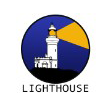LEARNING
At Trinity Catholic College all students are encouraged to strive for their personal academic best through a whole school pedagogy that supports student diversity and is inclusive of the learning needs of all students. Every day in every classroom our students are provided with differentiated educational opportunities to show what they know and are able to do.
CURRICULUM STRUCTURE
SUBJECTS STUDIED IN YEAR 7
- Technology (Mandatory)
- English
- History (one semester only)
- Geography (one semester only)
- Mathematics
- Music (one semester only)
- Personal Development, Health and Physical Education
- Religious Education
- Science
- Visual Arts (one semester only)

SUBJECTS STUDIED IN YEAR 8
- Technology (Mandatory)
- English
- History (one semester only)
- Geography (one semester only)
- Language other than English (Italian or French)
- Mathematics
- Music (one semester only)
- Personal Development, Health and Physical Education
- Religious Education
- Science
- Visual Arts (one semester only)

SUBJECTS STUDIED IN YEAR 9 and 10
- English
- History (one semester only)
- Geography (one semester only)
- Mathematics
- Personal Development, Health and Physical Education
- Religious Education
- Science
- Two electives
- Students may choose two of the following
- Child Studies
- Commerce
- Dance
- Drama
- Food Technology
- French
- Industrial Technology – Timber, Metal or Multimedia
- Italian
- Music
- Photography
- Physical Activity and Sport Studies
- Textiles Technology
- Visual Arts
- Study Through Distance Education School
Other than the courses offered at Trinity in Years 9 and 10, the study of a variety of courses is available to some students through Distance Education. Students complete their weekly classwork online along with regular Teams meeting with their Distance Education Teacher.

SUBJECTS AVAILABLE IN YEAR 11 AND YEAR 12
Students must study 12 units in Year 11 and at least 10 units in Year 12.
Subjects available include:
- English – English Studies, English Standard, English Advanced, English Extension 1, English Extension 2.
- Mathematics – Mathematics Standard 1, Mathematics Standard 2, Mathematics Advanced, Mathematics Extension 1, Mathematics Extension 2.
- Science – Biology, Chemistry, Earth and Environmental Science, Investigating Science, Marine Studies (Year 11 only), Physics, Senior Science.
- Human Society and Its Environment – Ancient History, Business Studies, Economics, Geography, History Extension, Legal Studies, Modern History, Society and Culture, Work Studies.
- Languages Other than English – French Beginners and Continuers, Italian Beginners, Continuers and Extension
- Technology and Applied Studies – Community and Family Studies, Food Technology, Industrial Technology - Multimedia and Timber, Textiles and Design.
- Personal Development Health and Physical Education – PDHPE and Sport, Lifestyle and Recreation.
- Religious Education – Studies of Religion 1, Studies of Religion 2, Catholic Faith in Action.
- Creative and Performing Arts – Arts - Dance, Drama, Music 1, Photography (Year 11 only), Visual Arts.
Vocational Education and Training (VET) courses are offered as part of the Higher School Certificate. They enable students to study courses which are relevant to industry needs and have clear links to post-school destinations. These courses allow students to gain both Higher School Certificate qualifications and accreditation with industry and the workplace as part of the Australian Qualifications Framework (AQF).
VET courses offered by the College are: Fitness, Hospitality, Cookery and Manufacturing, Engineering.
Other than the courses offered at Trinity in Years 11 and 12, the study of a variety of courses is available to some students through TAFE (TVET). Examples of TVET courses offered by TAFE include: Animal Care, Construction, Early Childhood Education and Care, Electrotechnology and Tourism.

ASSESSMENT
Assessment practices at Trinity Catholic College Lismore are integral to all learning experiences. The use of assessment for, as and of learning enables teachers to gather evidence and make judgements about student achievement and plan for future learning.
In Stage 4 and 5 Assessment is standards referenced. Each student's progress and achievements are tracked using syllabus outcomes. A standards-referenced approach provides the means by which students know what they are expected to learn and the standards against which they will be assessed. Every learning experience contributes to a student’s overall achievement grade.
In Stage 6 internal school assessment plays an important role in assessing overall student achievement in a HSC course. By assessing student achievement over a wide range of syllabus outcomes, students are provided with multiple opportunities and different ways to demonstrate their achievements other than approaches used in the HSC exam.
LEARNING SUPPORT
The College operates a Learning Enrichment Centre which provides learning, social and emotional support to all students at Trinity. The Learning Enrichment Centre is supported by two Learning Support Teachers and a large team of Teacher Assistants.



